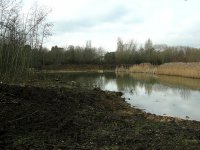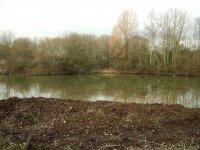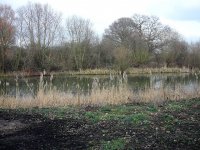Raptors Rule said:
Hi all,
I was just wondering out of all you birders out there how many of you are actively involved in conservation work and to what extent.
Sam
I'm a member of "Friends of Lavells Lake", a charitable body that manages " Lavells Lake", part of Dinton Pastures Country Park near Wokingham Berks under the Guidance of the Park Management.
We do monthly work parties to clear scrub and some invasive tree's ( mainly Poplars planted by the original owners (gravel extraction company ). Our next monthly task is to remove fencing around a new area of reedbed ( kept the geese from eating newly planted Phragmites ) this will then be moved to a new area of soil which was pushed into the lake last year creating a shallow 12-18 inch shelf, about 15 yards deep and 50 yards wide, we will then plant this area with clumps and small shoots from an area of reed that is getting too overgrown ( we cut this last workparty ). Its a cold, wet, mucky, smelly job, but someones got to do it.
We also intend to plant at the back of a scrape, recently redug, down to an average depth of about 8 inch, after drying out ( Crassula ? an invasive plant ). We also fundraise to assist in payments to contractors for paths, sluice ( as we are part of the flood plain of the River Lodden we need this to reduce flooding in the nesting season ), and materials for new hides fencing, bird food and feeders etc. Wokingham District Council and their Park Management are a great help in all that we do, in that they provide much funding, manpower, tools and organisation, along with other volunteer bodies.
Friends of Lavells Lake.
C/O
Dinton Patures Country Park
Davis Street
Reading
RG10 0TH.
All funds gratefully received!.
Tosend a brickbat, you need to attend a workparty.:-O
Organised workparties, 4th Sunday of each month 10am Lavells car park.
Tea and Coffee provided by Betty.
Alan Rymer
Hon Sec
Admin
If I'm not allowed this blatant advertising, please remove the offending parts!
First photo show re-dug scrape in background, Foreground left area for Sand Martin Bank.
Second photo, Part of area where latest reedbed dev to go ( you can see the shallow area ).
Third Photo, Part of last years reedbed dev with fence to be removed.
P.S. All this reedbed dev area is on a large Island where the public has no access.







